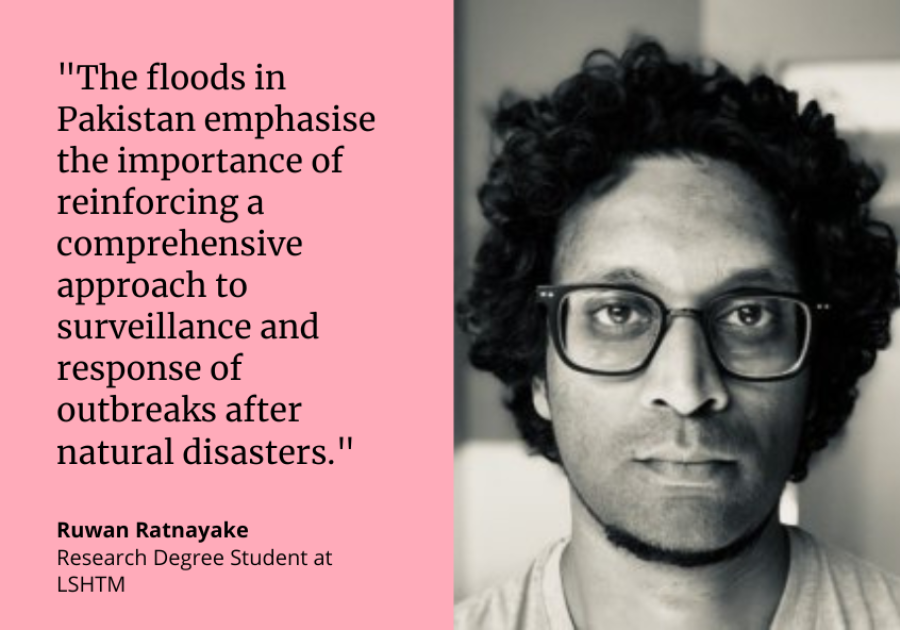
Ruwan Ratnayake quote card
Pakistan is one of the most epidemic-prone countries in the world, with ever-present outbreaks of dengue, malaria, and the persistence of poliomyelitis transmission. Now, unprecedented flooding due to deadly monsoon rains is burdening 33 million of the country’s 222 million population.
Flooding persistently exposes populations to standing water and leads to pervasive faecal contamination in wells and drinking water. This promotes the emergence of waterborne diseases including cholera, hepatitis E, and typhoid, giving rise to large-scale outbreaks that are very difficult to control.
Read more for the rest of Ruwan's comment on disease outbreaks following flooding in Pakistan.
If you enjoyed this article and would like to build a career in global health, we offer a range of MSc programmes covering health and data, infectious and tropical diseases, population health, and public health and policy.
Available on campus or online, including flexible study that works around your work and home life, be part of a global community at the UK's no.1 public health university.
